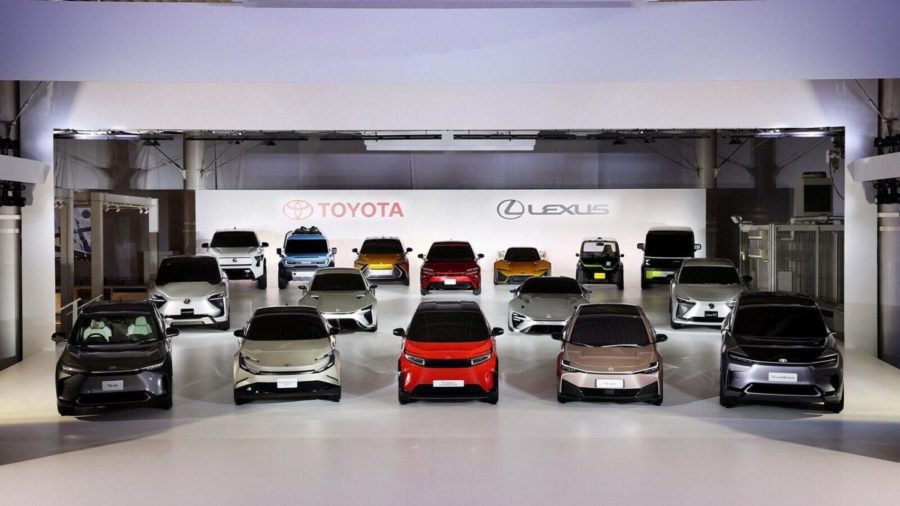Toyota Commits $70B to Electrification
At a media briefing in Japan, Akio Toyoda, global president of Toyota Motor Corporation, shared his vision for the future of mobility, which includes an investment of approximately $70 billion globally in electrified vehicles. (Toyota)
December 15, 2021
It’s one of the largest automakers on earth and a pioneer of hybrid technology. Still, Toyota has been anything but hurried in its development and adoption of battery electric vehicles (BEVs). Global competitors, large and small, from General Motors and Ford to Volvo and Mitsubishi, have made far more significant strides in the EV space over the past several years. However, Toyota appears to be making a more deliberate shift in electrification for the future.
At a media briefing in Japan, the automaker announced its plan to commit $70 billion to electrify its vehicle portfolio by the end of the decade, including hybrids, plug-in hybrids, hydrogen fuel-cell vehicles, and BEVs. Half of the total investment, or $35 billion, will go exclusively toward developing BEVs to offer 30 such models across the Toyota and Lexus product lineups globally. Also, as part of that initiative, Toyota aims for Lexus to have BEVs account for 100 percent of global vehicle sales in Europe, North America, and China by 2035.
Overall, Toyota looks to reach 3.5 million BEV sales worldwide annually by 2030. That figure is up from Toyota’s previous target of 2 million BEVs. Still, the 3.5-million figure will make BEVs account for only a fraction of Toyota’s overall worldwide sales in a time when many brands are looking to phase out internal combustion engines (ICE) and hybrid vehicles altogether.
Toyota’s EV approach remains considerably more measured than that of other automakers. “In this diversified and unchartered era, it is important to flexibly change the types and quantities of products produced while keeping an eye on the market trends,” said Aiko Toyoda, Toyota’s president. “We believe that quickly adapting to changes in the future is more important than trying to predict the future, which is nothing but uncertain. We want to keep options available for our customers until the right path is known,” he added.
Last month, Toyota declined to join other automakers at the U.N. climate conference in Scotland in a joint declaration to phase out vehicles that run on fossil fuels by 2040. When asked about the reason for the decision, a company executive said the carmaker was more focused on carbon neutrality than electrification, citing carbon as the underlying problem, not internal combustion engines.
Another reason Toyota has been slow to adopt EVs is its position that all-electric vehicles are not suitable for all customers, especially those without proper access to infrastructure. In the past, the company has also questioned the environmental benefits of BEVs with the notion that much of the world’s electricity generation relies on the burning of fossil fuels.
All of Toyota’s EV hesitations aside, the company’s $70 billion investment stands as one of the most significant commitments to electrification by an automaker to date. Toyota also recently announced a new $1.29 billion battery plant in North Carolina as it moves to expand its electric-vehicle efforts.
































































































































































